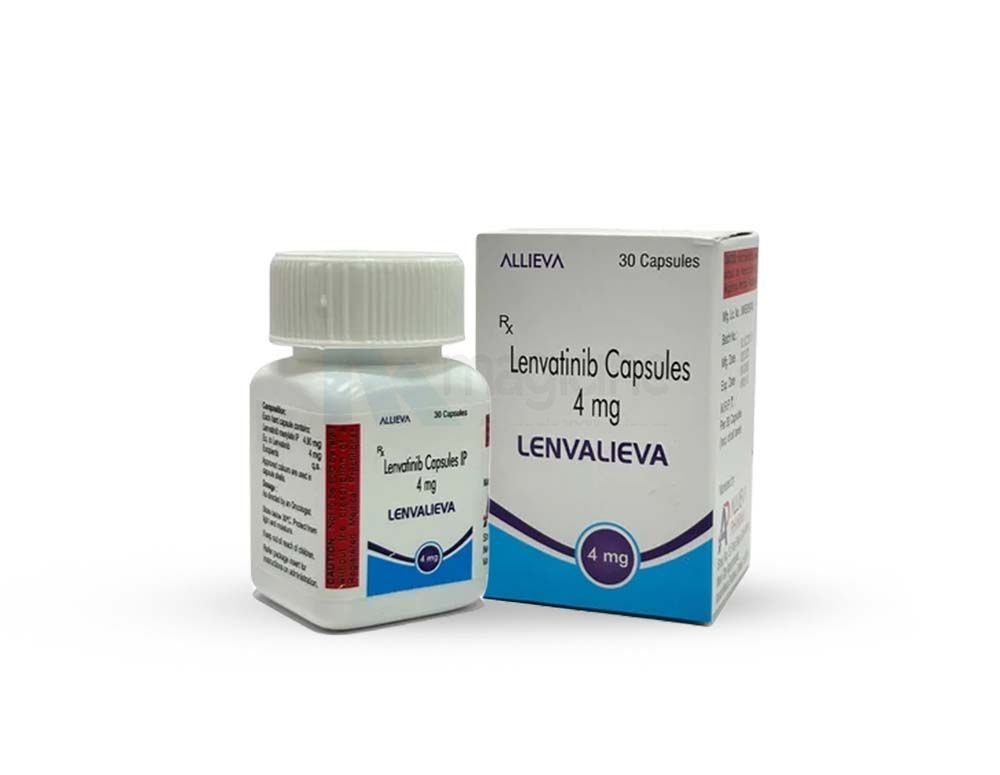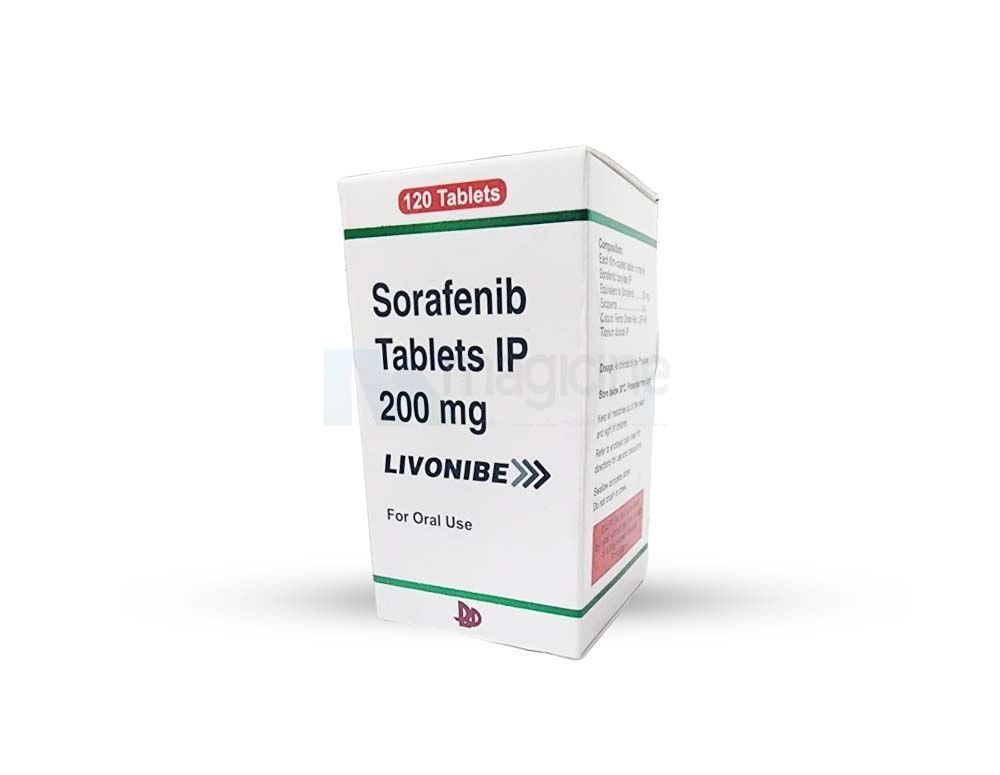Sort
All Filters
Thyroid Cancer
Thyroid cancer is defined as uneven growth in the tissues of the thyroid gland.
Top Products
What is Thyroid Cancer?
The thyroid is a butterfly-shaped gland located at the base of the neck. Hormones are produced by the thyroid gland. These hormones are essential to regulate the metabolism, which means how the body consumes the energy produced. Additionally, this hormone helps to control the blood pressure, body temperature, metabolism, and heart rate of the person. The Pituitary gland regulates the production of thyroid hormones from the thyroid gland. The pituitary gland is located at the base of the brain and is also known as the thyroid-stimulating gland (TSH). When thyroid hormone is produced in excess amounts, it is known as hyperthyroidism. The symptoms of this condition are irregular heartbeat, weight loss, stress and nervousness, and a warm body. Production of thyroid hormone in low amounts leads to hypothyroidism. In this condition, the body becomes tired easily and starts gaining weight. When there is uncontrollable growth in the cells of these glands leads to thyroid cancer. This disease shows different symptoms based on the severity of the disease.
Basic facts to be known about Thyroid cancer
● Around 5,86,000 thyroid cases were reported in 2020 across the world.
● Thyroid cancer is the 10th most commonly found cancer worldwide.
● From the total number of thyroid cases, about 4,49,000 were females and 1,37,000 males population was diagnosed with this disease.
● According to the recent report released in 2023 by the Ministry of Health and Family Welfare in India, around 5,40,000 people were diagnosed with thyroid cancer.
Signs and symptoms of Thyroid Cancer
The human body indicates and gives signs when something is not working in the right way internally. In the case of thyroid cancer, the symptoms are completely dependent on the type of cancer and the stage of cancer. When the person is diagnosed with this disease, the symptoms are not visible in the initial stages. A person can observe the symptoms when the abnormal cells grow and reach advanced stages. The most commonly found symptoms are mentioned below:
● losing weight without any known reason
● inflammation in lymph nodes
● swelling and inflammation in lymph nodes of the neck area
● formation of a lump or a nodule that can be felt through the skin
● hard to swallow anything
● difficulty breathing
● pain in the neck and throat area
● voice becomes hoarse, changes in voice
● appetite becomes poor
● vomiting and nausea
Factors causing Thyroid Cancer
There are various risk factors present externally and in the human body that can increase the risk of getting diagnosed with thyroid cancer. If a person feels he has 1 or 2 risk factors, it does not mean he is having this particular disease. This means he is at high risk of getting diagnosed with thyroid cancer. Moreover, there are some risk factors that we can change and prevent the disease from growing. In case of genetic changes, a person has no option left other than treatment if diagnosed with the disease. Some of the common factors causing thyroid cancer are mentioned below:
● Exposure to Radiation: the risk of thyroid cancer increases when a person has come in contact with radioactive material or is exposed to radiation at a young age.
● Age and Gender: This disease is more common in women as compared to the male population. Some types of thyroid cancer are diagnosed in old people.
● Genetic changes: If a person has a family history of thyroid cancer or other endocrine cancers, there are higher chances of getting diagnosed with this disease.
● Hormonal changes: Any type of hormonal imbalances caused due to pregnancy or estrogen therapy, may increase thyroid cancer risk in females.
● Deficient diet: Low intake of iodine can elevate the risk of thyroid cancer. Iodine is very essential for normal functioning of the thyroid gland.
● High BMI (Body Mass Index): Female population who are overweight are associated with a higher risk of thyroid cancer. Excess weight results in hormonal imbalance.
Stages of Thyroid Cancer
Once the person is diagnosed with thyroid cancer, the treatment is prescribed to him based on the stage of the tumor. The process of detecting how much cancer cells have grown and spread to different parts is known as staging. There are 4 stages of thyroid cancer. Stage 1 is treatable with surgery and the survival rate is high in this stage. When it comes to Stages 3 & 4, these stages are more challenging and may require more intensive therapies. The main focus of these therapies is reducing symptoms and prolonging life. The stages of kidney cancer are described below:
STAGE 1: The size of the tumor is small and it is confined to the thyroid gland. This stage is treatable with surgery if diagnosed.
STAGE 2: The size of the tumor started growing and has started spreading to the lymph nodes. It starts affecting nearby muscles and nerves.
STAGE 3: In this stage, the cancer cells have spread to the lymph nodes and nearby places like the trachea, esophagus, or blood vessels. The size of the tumor is variable and it is more aggressive.
STAGE 4: The cancer has spread to other parts of the body like the lungs, bones, and liver. It is considered as the last stage of cancer. The treatment options in this stage are a combination of surgery, radioactive iodine therapy, and external radiation.
Methods used in the detection of Thyroid Cancer
Thyroid cancer can be detected using the signs and symptoms of the person. The disease can be confirmed using laboratory tests or imaging tests. A person can perform this test for any other reason. Some of the confirmatory tests for thyroid cancer are mentioned below:
● Physical Examination: The doctor examines the neck area closely for any kind of lump or nodule-like structure. If it's present then he advises further tests. He also checks for symptoms like difficulty swallowing, hoarseness, or neck pain.
● Imaging Tests: Ultrasound, CT scan, MRI, and thyroid scan are commonly prescribed tests by healthcare professionals to confirm thyroid cancer.
● Blood test: This test checks for hormonal levels, these hormones include (TSH, T3, T4) and calcitonin. TSH (Thyroid Stimulating Hormone) levels help evaluate thyroid function.
● Biopsy: A tissue from the inflamed part (thyroid gland) is taken and tested for cancer cells. Healthcare experts also look for genetic changes while performing this test.
● Genetic Testing: Medical professionals look for any kind of change in the DNA structure. This test can be used in some cases to identify specific mutations associated with thyroid cancer.
Ways to prevent Thyroid Cancer
The exact cause of thyroid cancer may vary from person to person. It can be genetically transferred in some cases where it becomes impossible to prevent it. But still, there are various ways of stopping this disease from growing and spreading. Some common ways are discussed below:
● Balanced diet: Taking a balanced diet rich in fruits, vegetables, and whole grains to maintain overall health. Intake of enough Iodine is important as iodine deficiency can affect thyroid function.
● Smoking: This activity increases the risk of thyroid cancer. Avoid consuming tobacco to reduce the risk of thyroid cancer.
● Healthy BMI: Maintaining a healthy weight is essential to protect the body from different diseases. Regular physical activity and keeping your body fit can lower the risk of thyroid cancer.
● Physical Examination: If you feel any kind of lump or swelling in your neck area then go for the checkup immediately. Do not ignore such symptoms.
● Hormone Therapy: When undergoing any kind of hormone therapy, it is advisable to discuss the risks associated with the therapy.
● Radiation Exposure: Try to avoid or control exposure to radiation at a young age. Stay away from tests like X-rays and CT scans that involve the neck area to prevent the risk of getting diagnosed with thyroid cancer.
Treatment methods for Thyroid Cancer
The doctor prescribes the treatment depending on the size of the tumor and the stage of the cancer. Thyroid cancer can be cured completely in the early stage with the help of surgery. Chemotherapy treatment helps to slow the multiplication process and treat the symptoms using different treatments. The treatment options for thyroid cancer are mentioned below:
● Surgery: The cancer has stages and early stages are completely curable with surgery. The tumor located on the thyroid gland, part of the thyroid gland, and lymph nodes can be removed with this treatment method.
● Radioactive Iodine Therapy: This treatment requires radioactive iodine (I-131)which targets and destroys the cancer cells. The doctor prescribes this treatment in cases after surgery to treat remaining cancer cells. This therapy is effective in treating papillary and follicular thyroid cancers.
● Chemotherapy: This therapy is not much used in treating thyroid cancer. It can be considered as an option for anaplastic thyroid cancer. This cancer is very aggressive and resistant to other treatments.
● Targeted Therapy: Medications like Sorafenib and Lenvatinib come under the category of target-specific drugs. These anticancer drugs are available at low prices on Magicine Pharma. This online pharmacy deals with all kinds of anticancer drugs. These medicines target the genetic mutations or proteins involved in the growth of thyroid cancer cells.
● Thyroid Hormone Therapy: In this therapy, synthetic thyroid hormones are used to suppress TSH (Thyroid Stimulating Hormone). This hormone has the potential to stimulate remaining cancer cells.
FAQ's
1. Is it possible to treat Thyroid cancer permanently?
Yes, it is possible to cure thyroid cancer in cases when it is in its early stages and the growth is restricted to a specific place. The treatment of the disease depends on the stage and type of cancer.
2.What are the visible symptoms of thyroid cancer?
A person may feel a lump or nodule-like structure in the neck region and feels difficult to breathe and swallow anything. His voice may change with pain & swelling in the neck area.
3. How long can a person survive after getting diagnosed with thyroid cancer?
Around 95% of patients diagnosed with thyroid cancer can live for more than 5 years.
4. Can a person live without a thyroid?
Yes, a person can live without a thyroid. In some stages of thyroid cancer, removing the thyroid can help to cure a person from thyroid cancer. He may require hormone replacement medication for a lifetime.
5. What are the physical changes a person may feel after thyroid cancer?
Swelling in the neck region, difficulty in swallowing food, and problems with breathing are some of the changes observed. Your neck becomes very hard, numb, and stiff.
References
https://pib.gov.in/PressReleaseIframePage.aspx?PRID=1944065#:~:text=The%20incidence%20of%20thyroid%20cancer,cancer%20being%20the%20most%20common.
https://pmc.ncbi.nlm.nih.gov/articles/PMC8986939/#:~:text=5%2C%209%5D.,Results,among%20females%20(Table%201).
https://www.uclahealth.org/medicalservices/surgery/endocrinesurgery/conditionstreated/thyroid/thyroidcancer#:~:text=Thyroid%20cancer%20treatment%20is%20very,well%20with%20modern%20targeted%20therapies.






